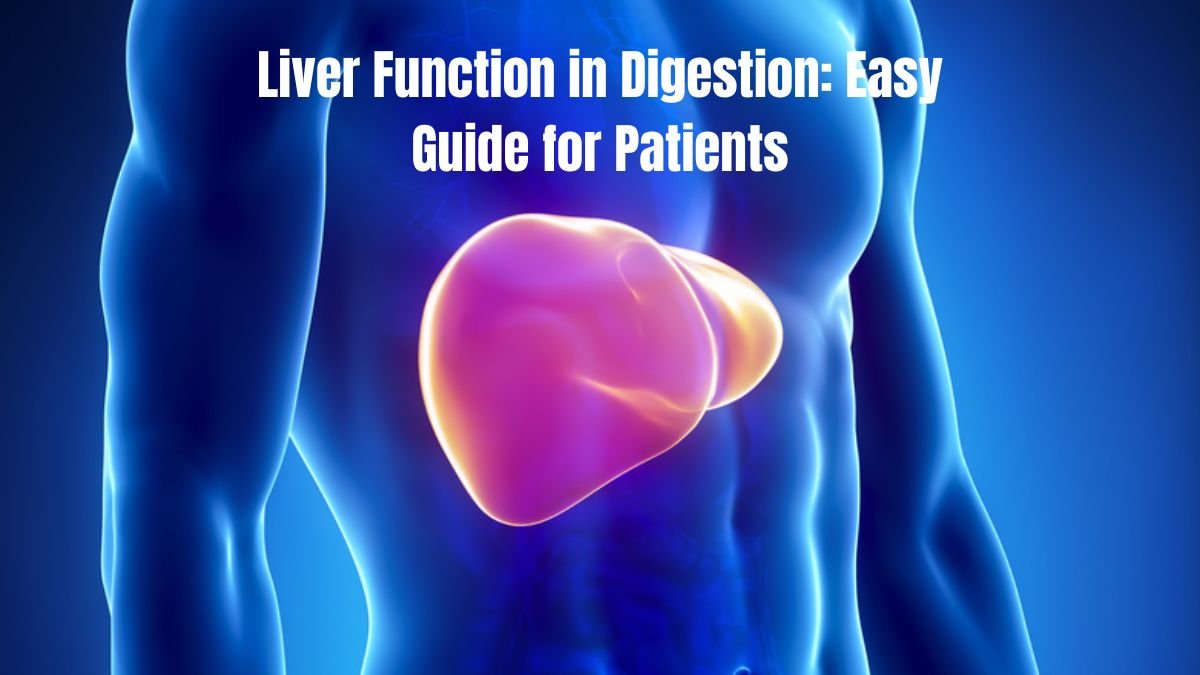The Importance of the Liver in Digestion: The liver is often called the “body’s chemical factory.” It not only purifies the blood but also participates in many vital processes related to digestion. Many patients and the general public don’t understand the true role of the liver in maintaining digestion and our health. In this article, we will explain the role of the liver, its functions, its importance in digestion, and easy ways to keep it healthy in simple terms.
What is the liver and where is it located?
The liver is the largest internal organ in our body. It weighs approximately 1.2 to 1.5 kilograms. It is located on the right side of the abdomen, just below the diaphragm and above the stomach. It is connected to the blood and performs over 500 chemical functions daily.
The Liver’s Key Role in Digestion
Whenever we eat, not only the stomach and intestines, but also the liver, help convert that food into energy and nutrients. Some of its key roles related to digestion are as follows:
- Production of Bile: The liver produces bile juice, which travels to the small intestine and helps break down fats.
- Without bile juice, the body cannot properly digest and absorb fats and fat-soluble vitamins such as A, D, E, and K.
- Processing of Nutrients: Carbohydrates, proteins, and fats from food are processed in the liver and converted into energy and essential chemicals
- The liver stores excess glucose as glycogen, which is then converted back into glucose to provide the body with energy when needed
- Removal of Toxins: Some waste products and toxins are produced in the body during digestion.
- The liver works to filter and remove these harmful substances
- Production of Proteins and Enzymes: The liver produces many types of proteins, such as albumin and clotting factors.
- These proteins are essential for digestion and body repair
- Storage of Vitamins and Minerals: The liver stores iron, copper, and vitamins A, D, E, K, and B12.
This storage helps when the body needs additional nutrients.
What happens if the liver malfunctions?
- When the liver is unable to perform its digestive functions properly, several problems arise:
- Fats and proteins are not digested properly.
- The patient often experiences indigestion, bloating, and weakness.
- The body is deprived of essential nutrients.
- In severe cases, diseases such as jaundice, ascites, and liver cirrhosis can occur.
Common Symptoms That Indicate Liver Problems
If the patient continues to experience the following symptoms, it could be a sign of a liver problem:
- Frequent indigestion or acidity.
- Loss of appetite or a feeling of fullness quickly.
- Heaviness in the upper abdomen.
- Yellowing of the skin and eyes.
- Fatigue and weakness.
- Dark urine.
Easy ways to keep the liver healthy
Some simple habits for both patients and the general public can help maintain liver health long-term:
Balanced Diet
- Eat less oily and spicy foods.
- Eat more green vegetables, fruits, and whole grains.
- Drink plenty of water.
Avoid alcohol and smoking
- Alcohol causes the most damage to the liver.
- Smoking and drug abuse also reduce liver function.
Regular Exercise
- Light exercise and yoga prevent fat accumulation in the liver.
- Obesity is a major cause of fatty liver disease, so staying fit is important.
Proper Use of Medications
- Do not take any medication without consulting a doctor.
- Excessive use of painkillers and antibiotics puts pressure on the liver.
Vaccinations and Screening
- Vaccinations are essential to prevent hepatitis A and B.
- Regular health checkups can help detect liver problems early.
Common Myths About the Liver and Digestion
- Myth: Only alcoholics develop liver disease.
- Fact: Obesity, poor diet, and medications can also damage the liver.
- Myth: Liver disease always begins with severe symptoms.
- Fact: Sometimes there are no symptoms in the early stages. The disease progresses slowly.
- Myth: Home remedies can cure liver disease.
Truth: Home remedies can be helpful, but true treatment is possible only under the supervision of a doctor.
Conclusion
The liver is not just a blood-purifying organ, but also the foundation of the entire digestive process. It converts food into energy and nutrition, removes toxins, and maintains a healthy body. If it is damaged, the entire digestive system is affected. Therefore, caring for the liver is as important for every patient and every individual as it is for the heart or brain.
By maintaining a balanced diet, regular exercise, avoiding alcohol, and getting regular checkups, we can keep our liver healthy for a long time.
